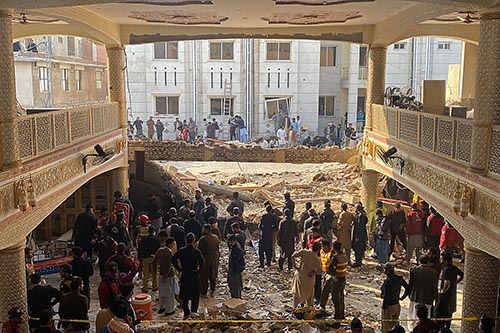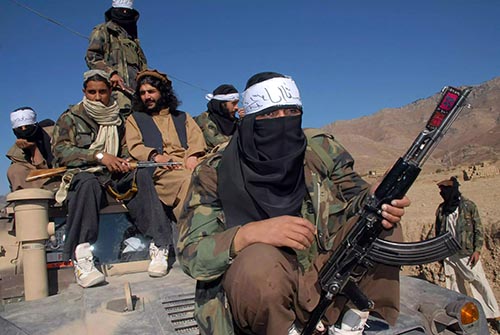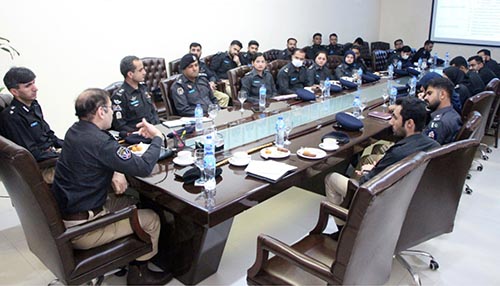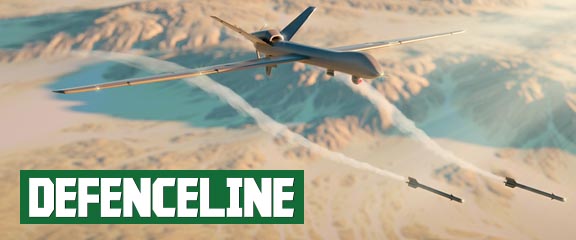‘I weep for the liberty of my country when I see at this early day of its successful experiment that corruption has been imputed to many members of the House of Representatives, and the rights of the people have been bartered for promises of office.’
— ANDREW JACKSON.
A mosque gets bombed in Peshawar, more than a hundred die, and some think that they have furthered the cause of Islam through such an act. Our officials issue statements, praising the sacrifice and courage of the martyrs. It matters little that none of these victims set out that day to sacrifice anything for anyone let alone give up their lives for an unknown cause.
It reminds one of a volunteer, who swam across the raging icy river, and on surviving the ordeal, inquired indignantly, as to who pushed him in? The quip is neither written to belittle the tragedy, nor is it intended to deny the empathy that must be extended to the bereaved. The hurt inflicted upon the families of the victims is not only irreversible but irreconcilable. Yet, the drama of deceit goes on as usual. Powers that be shed crocodile tears and feign false sympathy. Each pretender in solemn but staged dignity, shoulders the coffin as he gets photographed in a display of unparalleled hypocrisy. He offers condolences with artificial concern, deviously making promises that he does not intend to fulfil. In the year of our Lord, 2022, terrorist attacks have jumped by 28%. A total of 376 terrorist incidents occurred in 2022 in which 533 people lost their lives and 832 got injured. Who is responsible for this? Who is making policy? What kind of action is being taken? Who cares? The irresponsible and casual attitude of an incompetent government and all its institutions perhaps comes as an answer.
The January 30 Peshawar mosque bombing is terrorism at its worst, exposing our poor governance and lack of preparation. What is the definition of terrorism? This is something even the United Nations struggles to define since political connotations come in the way, hurting some countries more than others. For the purpose of this paper, we shall refer to it as a ‘violent act by a criminal group for an abstract objective.’ From the Pakistani perspective, following incidents like Peshawar, we talk a lot about terrorism, but forget the circumstances that facilitate it. There are multiple problems in our administration across the full-spectrum of governance, affecting the State and its citizens as we project false propriety and make claims of dispensing timely justice.

Among scores of challenges, we need to review on a war-footing including the overall law and order situation, highway dacoits, rampant street crime in cities, traffic mismanagement, power and fuel shortages, and the looming financial collapse and unprecedented inflation. These are indicators of a near anarchy-like situation. Apparently there is no government here or even if there is one, it is just in the name only. When the State has lost the capacity or the will to administer justice, ensure law and order, and even manage basic administrative matters, how can one expect it to manage a complex phenomenon like ‘terrorism’? A society that in itself is radicalised, makes it easier for the non-state actors to penetrate, condition and shape into a violent aberration. Inventing a cause or creating an event designed to offend the public at large is easier in such societies. Extremists, obscurantists and fanatics are generally angry people, always in search of a cause to extinguish the fire within their breasts. Such individuals or even communities can easily be recruited for militancy, violence and terrorism – for some so-called higher objective or a divine cause.
Causes of Terrorism
Terrorism is always, first and foremost, a product of dissatisfied and misled people looking for attention in one way or the other. The leading factor that creates a conducive environment for terrorism is for a government to be indifferent to political, administrative and judicial grievances of the people and the communities. When a government either by its incompetence and lack of capacity or because of an apathetic attitude, fails to address even the routine problems, the society becomes disenchanted. The common man’s lack of access to the authorities — who could, but will not or cannot address any of the complaints — leaves him in an administrative vacuum, with nowhere to go and nothing to hope for. This forces the common man to search for an external source that may appear to be more sympathetic and attentive. This external source is usually a hostile agency of an enemy state, lying in wait for an opportunity. Once an aggrieved party has been engaged by a hostile agency, the leadership of the aggrieved community is funded, given access to foreign travel, provided with a political platform at the international level to voice grievances, real or perceived. The followers of the group are then suitably paid, resourced, armed and trained. This is how terrorism takes roots and behind every terrorist, there will always be a hostile agency. These agencies compete with one another to further their respective national interests through mayhem and chaos. They hope to provide a favourable environment for bargaining during a negotiated settlement, in line with their national objectives. The problem becomes more complex because of the nature of work that these intelligence agencies do which is usually decentralised and allows for rogue elements or personal agendas to take the lead role.
One of the biggest rationales for one to pursue a terrorist organisation for assistance or become a terrorist is lack of judicial propriety. When justice is denied to the common man, it is an opportunity for the militant groups and political dissidents to establish parallel courts. These courts are affordable and dispense justice quicker with less hassle. They establish ‘credibility’ by getting their decisions implemented through militant gangs. The Robin Hood effect comes into play and the movement or group begins to acquire popularity. This is always at the cost of the government that gradually becomes more and more irrelevant in that area or region.

The other factor which promotes terrorism is a lack of opportunity and development. People feel disowned and disfranchised. This becomes a motive to join groups as one would join a club. It usually begins with the black and green turbans, where the individual wants to make a statement that he too belongs to something. Individuals and communities search for an identity, fraternity, ownership and relevance through such groups. Catchy slogans are created, narratives developed and a cause is established. Such activities always gain momentum in a vacuum where the absence of governance is the most defined characteristic.
Material motivation to the leadership is another cause for terrorism. A dissident group establishes no-go areas and then generates revenue through dispensing administration and justice. It establishes its writ and power and attempts to expand to enhance the potential for more material gains.
Ideological motivation is also used for recruitment. Individuals as well as communities are brainwashed into submitting to the divine on an invented cause. Foot-soldiers in an insurgency are usually young recruits with limited education and awareness of what the world is all about. Fed on a narrow madrasa-based propaganda, they are groomed towards a fatalistic objective — to get to heaven as quickly as possible.
None of the militant groups in Pakistan have any real strategic goals or objectives. Those that are mentioned are simply rhetorical rallying cries. This is why splinter groups (amman or peace committees) are easily created as they are weaned from their mother organisations by an offering of power and money. This is where their own intelligence agencies come into play and aggravate the overall environment by inserting their own sources into communities in the exaggerated and futile hope that they can then influence it with ease. These communities then become hostage to the intelligence agency structured ‘amman committees’. These certified and approved armed thugs are seen as the government’s surrogates. Such groups become bullies, establish check posts and demand revenue – all under the protection and approval of this or that intelligence agency. This alienates communities further and they get bitter against the government, blaming it for all their miseries and violence around them. Those directly affected are ready to undertake anti-state activities, provide safe-havens, and facilitate recruitment to the insurgents who now seem to have developed a just cause – liberation from the tyranny of an indifferent government.
Difficulties in Eliminating Terrorism
To-date, no proper process or strategy exists for the elimination of terrorism and violence in the country. The phenomenon of terrorism is integrated in the procedures and systems of the government and its governance. For de-radicalisation of the society, the issues in our education and justice systems, the economy, immigration, anti-narcotics, smuggling and the general law and order have to be addressed simultaneously. Yet, any attempt to do so is either corrupted or scuttled by the department concerned because of vested interests. Counter-terrorism organisations become part of the problem rather than the solution such as the intelligence agencies or the law enforcement authorities because of incompetence, vested interests or corruption. The government cannot undertake any corrective measure without undermining its own interests and those of its own officials and bureaucracy. Each office, institution and organisation has a stake in one thing or the other, and thus if one even tries to touch the refugee system, immigration, NADRA, customs etc., someone, somewhere gets hurt.
The process to contain terrorism is reduced to glorifying ‘shahadat’ and not enquiring into the causes of why casualties occur? Regardless of civil or military engagements, no one is ever held accountable for any security lapse, negligence, improper orders/instructions, poor planning or non-adherence to procedures. Tactics are never questioned, strategy is never debated and policy is always a secret. Events are forgotten only to be repeated after a lapse of a few months or years. Lessons are never learnt and corrective measures are seldom put in place and those that are, usually cause inconvenience to the people and disrupt the routine life.
The National Action Plan (NAP) and the National Counter Terrorism Authority (NECTA) remain subdued and castrated because of indifferent governments and their vested interests. Such organisations are doomed to fail because they are deliberately made dysfunctional so that they do not transcend into forbidden zones, exposing the illicit and illegal activities of each government organisation and institution. Three major issues — for example immigration (legal and illegal), smuggling, and illicit funding/corruption — are carefully evaded and blatantly concealed by the complicity of the government organs and a dysfunctional judiciary. Narcotics is another such case leading to a parallel administration by itself.
Soft legal action and improper judicial procedure allows criminals to buy their way out. The haste and enthusiasm in releasing the TTP prisoners is one example which indicates the lack of proper understanding in these matters. The eagerness to negotiate with terrorists, itself, had vested intent and interests. The State and its people, were not and never are, taken into consideration when undertaking such tasks. Only individual views and institutional positions come to the forefront – the loudest rhetoric wins the argument. There is a total lack of accountability or audit in all government institutions and of all individuals.
There is a complete lack of enthusiasm for proper training or equipping the law enforcement personnel appropriately. Displays are demonstrated by various training institutes — like a monkey show — exhibiting acrobatic skills and gymnastic demonstrations to clueless senior officials who are enthralled by the circus. No institution shapes opinions or develops mind-sets. No psychological narrative has been structured to broadcast on the media or through print, explaining the horrors of violence and terrorism. Ad-hocism is considered being innovative and promoted as self-sufficiency. Not a single official is ashamed of the poor bearing of subordinates, their conduct or the image that they project in public. There is no pride and little self-respect. Also, sympathy with the cause of terrorists within government offices prevents proper implementation of any orders. Sympathisers are influenced by irrelevant philosophies: sometimes anti-west, at other times because of Islam-phobia and very often by playing the victim’s card.
Centralised control by various institutions, impedes timely action and delays responses. Rules-of-engagement are not specified and everyone looks over his shoulder. Officials avoid giving written instructions and are reduced to providing warning of in-actionable intelligence reports. No one wants to sign an operational order or commit to any action since he lacks the faith and trust in his own institution and superiors. Operators suspect that they may be abandoned if matters go awry. Intelligence agencies are woefully missing in action. They do not provide any actionable intelligence and generally circulate vague and broad warnings such as ‘terrorist activity likely in Islamabad in the next few days’. If an event occurs, the intelligence claim that they had forewarned everyone and if nothing untoward occurs, they claim they have averted a disaster. Terrorism cannot be fought with superficial, frivolous and meaningless antics.
Possible Road to Containing Terrorism
If one is to deal with terrorism and eliminate the menace of violence, then the first and foremost task is to establish a Government! Stability cannot be achieved in any field without a formal government. What is now passed off as a government, is like a monkey at the control of an aircraft. Steps need to be taken to give federal institutions functional authority. Empowering the NAP and the NECTA, and allowing them a free hand with their own integral judicial cover remains of paramount importance. Whereas operations should be kept secret, but policy cannot be kept undisclosed. All the policy-making must have institutional ownership and identity and should be in the public knowledge. For example negotiations with the TTP is one such glaring stupidity. Who did it? The nation must know.
Apply the Madrasa Regulations immediately, including auditing their expense accounts and funding. Syllabi needs to be scrutinised and amended where needed. Ban religious parties from politics or for political parties using religion as a political tool. Clear the lines of communication along major arteries on the national highways of all structures associated with Madrasas. Relocate all the madrasas in Islamabad elsewhere; the capital must not be held hostage to followers of Maulana Aziz – the Burqa fame. Enough is enough and the government needs to come down hard on these miscreants, who exploit ideology to further personal gains.
Establish a special court to deal with terrorists which should not be politicised or used for routine cases. Only cases related to terrorism are tried there and not the ones such as the so-called threats to the election commission or the government officials. One must differentiate between defamation and terrorism.

Create a de-radicalisation plan for the society. National-level plans should be structured which should be focused on liberating the people from unnecessary ideological dogmas and regulations or where society is held hostage by the mullahs and obscurantism. Education, sports, tourism and entertainment must focus on liberating the society. We should at the least study the model being followed in the Middle East and apply it here.
Law and order has to be upgraded as a discipline and way of life. SHOs must answer to any untoward incident and be held accountable. Police must be able to explain who is renting houses, occupants of local hotels, outsiders visiting respective localities etc. Traffic must be monitored through relevant chip technology and records maintained. The CCTV coverage must be established, maintained and be operated 24/7. Private militias must be dismantled, personal armed guards disallowed. The VIP culture must be curtailed ruthlessly. Every citizen must be as relevant as any other. Society to be gradually de-weaponised in an organised manner and shooting clubs to be established for enthusiasts where they may store and maintain their licensed weapons that cannot be removed from the premises without formal approval and record. Aerial firing on celebrations and marriages to be deterred by strong punitive action.
Possible Military Action and Posture
Military action is never a permanent solution to stabilising a region. It can only create a conducive environment for a political process to engage the people through an institutional approach. Nevertheless, our situation today calls for appropriate military action to stabilise the country in general and the western border regions in particular. Spaces must be secured along with their population by the field army, while terrorist leadership must be taken out through intelligence-based operations. The intelligence agencies have a major role in counter-terrorism, however, they all must be grouped under the field army in their respective areas and must not be encouraged to work independently. Briefs must be prepared as to who-is-who, what’s happening and what is likely to happen in the immediate future. All intelligence activity must be approved by the field commander. Plans must be drawn up for appropriate military action against militant groups in Pakistan as well as Afghanistan. Redefining the relationship with Afghanistan along the international border is an important component of the military presence there. This relationship must be established on the basis of mutual gain or reciprocal pain. Treat the TTP militants as criminals and not as a political entity. The government officials and the military must only talk to them on the terms of their surrender and that too after they have committed to following the constitution and are willing to disarm. Failing these conditions, the TTP should be seen as a legitimate target to be engaged by air and by ground through drones, artillery, air-force or physical attacks. Use of heli-borne troops in targeted areas for quick raids is an important method to eliminate the TTP menace. Whereas, in counter insurgency/terrorism, action is always tactical in nature and size, yet the implication is more or less strategic. No action should be taken lightly.
Some suggestions are:
a. Contain it
(1) Fusion Cells must be set up. Compiling data is essential; gathering of intelligence, general community habits, routine happenings, extraordinary events etc.
(2) Develop early warning procedures. Identify people entering villages/towns, renting buildings, hiring hotel rooms etc.
(3) Appropriate safeguards, protection of security staff, bomb-proof shelters for vehicle-checking, sniffer dogs etc.
(4) Precautionary checks points to be established spontaneously at random locations without a defined pattern.
(5) Zero tolerance for zealots, extremists and religious preachers fanning hatred.
(6) Regular communication monitoring and sharing of intelligence related to radio communication.
(7) Intensive air reconnaissance/drone activity of rural areas and border spaces.
(8) Protection of road moves. Road opening days to be scheduled and imposed/declared when the situation is bad.
b. Deter It
(1) Take the conflict to the initiators territory away from own doorstep
(2) Punitive action against criminals regardless of official or political affiliations.
(3) Establish coordinated and integrated village defence systems.
(4) Keeping an eye on families of militants, their visitors and activities.
(5) Incentives for cooperation with the government to communities and individuals; maybe confidential or public, depending upon the threat-level.
(6) Reward diligence, alertness and timely action.
(7) Confiscation of property by the State of absconding militants.
c. Eliminate it
(1) Wrest the initiative through surprise operations. Dominate the no-man’s land through physical presence or surveillance. Physical presence can be done through network patrolling.
(2) Attack the militant leadership through:
(a) Intelligence-based operations directed at the leadership and hideouts.
(b) Raids by physical assaults and fire.
(c) Drones.
(d) Airstrikes.
(e) Heli-borne attacks and insertion of heli-borne troops on strategic features.
(3) Control communication lines physically. Eyeball the roads for IEDs through segmented patrolling along 5 kms patches. Cover area was sanitized by fire.
(4) Identify and monitor routes used by militants and establish random ambushes there.
(5) Secure spaces and the population within.
(6) Illuminate the area, for eyes and ears, through spontaneous patrols.
(7) Own the night in the rural spaces and ensure no movement takes place other than official movement or that, which has been approved.
(8) Conduct surprise artillery raids on targeted areas.
d. Sustain Stability
(1) Ensure the courts are open and attended to. Justice must be timely.
(2) Government offices are functional. Establish public complaint cells and ensure problems get addressed.
(3) Establish dial-in FM stations, giving access to the general public.
(4) Regulations are applied equally to all and there is public acknowledgement of justice being done equally.
(5) Develop community confidence in the government apparatus in the protection of their lives and property.
(6) Ensure law and order with certainty and continuity as the basic principle.
(7) Opportunity to all for gainful employment or trade/business.
(8) Visible Development such as useful education and training in skilled labour with third-party international certification.
(9) Provision to declare affected areas into military districts and imposition of emergency/martial law at the request of the civil administration if matters begin to get out of hand.
Conclusion
It is widely understood and known how terrorism can be dealt with and contained by officials in their respective posts. The only route is through governance, rule of law and a viable justice system. This is not likely to happen in the current scenario since the government itself aggravates the situation by either not applying itself appropriately, or because it lacks capability, capacity and will to do so. We are thus doomed to continue suffering violence till some time to come. Usually, such a free-for-all environment eventually leads to a bloody revolution but we are even denied that since our people have an infinite depth to tolerate anything — even humiliation and insult. They are willing to suffer tyranny and injustice in hopes that it would pass them by. Our population, as a whole, can be safely characterised as one that is always in search of a free-lunch – something for nothing. And it is only from this society that we recruit officials in the government and its various institutions. How can the government then be any different from the people it governs? Our fault thus does not lie in our stars. However, still very few are willing to agree that this democracy with this constitution and this government will not work for us. The State is sinking, while we preserve a government that does not govern, a democracy that is not democratic, and a constitution that cannot protect the people. So, on this note, the final recommendation that this paper proffers on a take-it or leave-it basis, is to have mercy on this hapless nation, and establish an interim measure and system. Something, anything that can discipline the nation, establish standards, define national objectives, ensure rule of law, and treat everyone as equal citizens. A technocrat setup. Other countries have done it, why can’t we?



